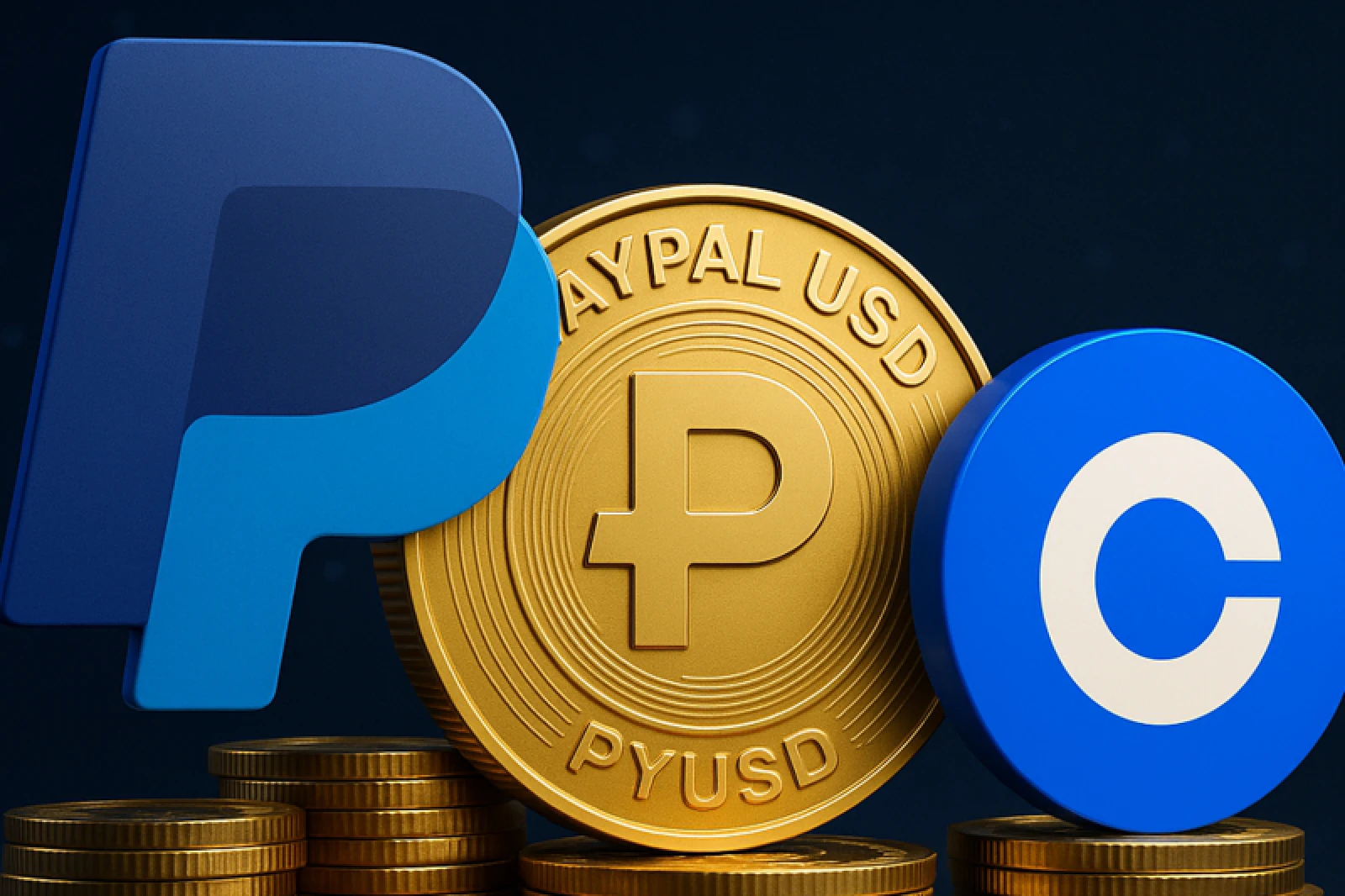Can PayPal and Coinbase’s New Partnership Make PYUSD a Leading Stablecoin?
PayPal and Coinbase have partnered to promote $PYUSD with zero fees, 3.7% yield, and DeFi integration, challenging top stablecoins despite regulatory hurdles.

Crypto Laddin
Author

PayPal and Coinbase have joined forces in a significant partnership to promote the use of the PayPal USD ($PYUSD) stablecoin. Announced on April 24, this collaboration eliminates all trading fees for $PYUSD on Coinbase’s platform, allowing users to buy, sell, and trade the token without any additional costs.
This move aims to accelerate adoption by reducing financial barriers, making $PYUSD more attractive to both retail and institutional users. Coinbase will also offer seamless 1:1 conversion of $PYUSD to US dollars directly on the exchange, enhancing trust and increasing its use across decentralized finance (DeFi) platforms and blockchain ecosystems.
PayPal CEO, Alex Chriss, highlighted the importance of the partnership, saying, “Our longstanding collaboration with Coinbase has prioritized seamless integration, empowering PayPal users to fund crypto transactions effortlessly. With PYUSD, we’ve aligned our payments expertise with Coinbase’s infrastructure to unlock broader commercial possibilities.”
The partnership builds upon previous collaborations between the two companies, including a 2021 integration that allowed Coinbase users to fund their accounts with PayPal and withdraw fiat currency.
PayPal launched $PYUSD on the Ethereum blockchain in August 2023, and since then, the company has been working aggressively to increase its utility across the digital finance space. In May 2024, PayPal expanded $PYUSD to the Solana blockchain, enhancing transaction speed and reducing fees, key factors for user adoption.
The most attention-grabbing move, however, is PayPal’s announcement of a 3.7% annual yield on $PYUSD holdings for U.S. users, set to begin in summer 2025. This reward program will apply to balances held in PayPal and Venmo wallets, with rewards calculated daily and distributed monthly.
Despite its growing infrastructure, $PYUSD still trails behind major competitors. Tether ($USDT) leads the sector with a market cap of $146 billion, followed by USD Coin ($USDC) at $62 billion. However, PayPal’s vast payment network—Venmo and Xoom—positions $PYUSD as a strong contender in remittances, checkout services, and cross-border payments.
While the approach is ambitious, regulatory challenges and competition from existing players could limit $PYUSD’s potential. The introduction of regulations like Europe’s MiCA, which bans interest payments on stablecoins, could impact PayPal’s yield program. Similarly, U.S. legislation like the STABLE Act could restrict stablecoin issuers from offering rewards.
Nonetheless, PayPal’s integration of $PYUSD into its payment infrastructure allows the company to create a closed-loop system, where users are rewarded for keeping and using the stablecoin within the ecosystem. This could drive transaction volume and strengthen $PYUSD’s position as a serious contender in digital payments.





